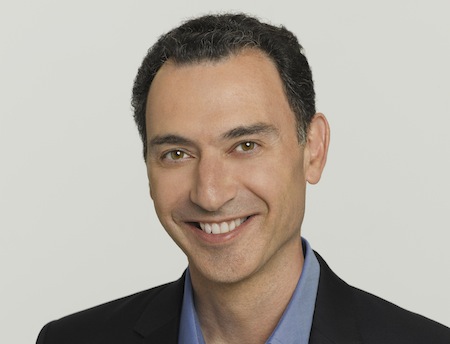ABC’s Lee Touts Diversity On and Off-Screen #TCA14

The smarter way to stay on top of broadcasting and cable industry. Sign up below
You are now subscribed
Your newsletter sign-up was successful
Beverly Hills, Calif. — The onscreen diversity in ABC’s new fall series is an offshoot of the network’s efforts to mirror an evolving audience, according to ABC Entertainment Group president Paul Lee.
“It is a mission statement to reflect America. That’s our job,” Lee said Tuesday at ABC’s TCA summer press tour executive session. “And in a way it’s not so much diversity as authenticity."
Lee talked, as he did at the network’s upfront presentation in May, about the network’s strategy of singling out creators and approaching them to launch projects. He pointed to American Crime creator John Ridley, the Oscar-winning writer of 12 Years a Slave, as an example of the quality of creators the network has been able to attract. At the beginning of his session, Lee announced that ABC had that morning finalized an overall television deal with Ridley, whom he called “an extraordinary showrunner.”
Recent years have seen a dramatic dearth of series with primarily minority casts across all of broadcast. Next season, ABC will have three such series in new comedies Black-ish, Cristela and Fresh Off the Boat, as well a broadly diverse casts in American Crime and the Shonda Rhimes-produced How to Get Away With Murder.
Asked what the “tipping point” was that led to this season’s influx of diversity, Lee said, “Let’s not pretend we’re there yet. I think we’ve taken a very big step along that journey.” The groundwork for onscreen diversity, Lee said, has been laid with the network’s executive team and that group’s relationships with creators such as Rhimes—who bemoaned the "lack of people hiring women and minorities" in television at the Directors Guild Awards in January—and Ridley. “I’m very proud of the fact that if you look at the back of the room and you look at the executives who do development, who do programming and who do marketing across ABC, it’s a very diverse group of people. You need the people who are telling the stories as well as the people who are playing the stories out to truly reflect America.”
Lee also said that the cultural “specificity” of the new series was part of their appeal. He was then asked why The Goldbergs, the network’s sole returning freshman comedy, has not specified on air that its characters are Jewish, as they are largely understood to be.
“I don’t think there’s anybody in the country who watches The Goldbergs who doesn’t think it’s about a Jewish family,” Lee said. “I think it’s pretty specific.” He then said he had no plans to talk with creator Adam Goldberg about identifying the family more explicitly as Jewish. “I’m not going to sit here as head of the network and say, ‘As one Jew to another, I want a Bar Mitzvah.’”
The smarter way to stay on top of broadcasting and cable industry. Sign up below
Other highlights from the session included:
—Lee touted the network’s strategy of splitting the seasons of some of its fall series and airing other series over the midseason gaps. The network will employ that strategy this season with Marvel’s Agent Carter, which will air in the gap between new episodes of Marvel’s Agents of S.H.I.E.L.D., and Galavant, which will air over Once Upon a Time’s midseason break. Lee said that, in retrospect, last season’s canceled spinoff Once Upon a Time in Wonderland would have benefitted from being part of that effort.
“I would have given that show a better chance if we’d done what we’re doing with Galavant and put it in the gap,” Lee said.
—Lee defended his scheduling of family comedy Trophy Wife, which aired on Tuesday nights last season while comedies Super Fun Night and Mixology, about young singles, occupied the post-Modern Family slot on Wednesday nights. “Trophy Wife was a disappointment and we tried hard toward the end of the season to create really promotable episodes that we could promote, and we still couldn’t bring people to it,” Lee said. “My job is really hard when you have good shows that can’t find an audience."
—New summer singing competition Rising Star came out of the gate with lukewarm ratings, premiering to a 1.5 among adults 18-49 June 22. “We’re very pleased that it’s starting to build,” Lee said. “We were a little disappointed with the numbers. We wanted them a little bit higher.” Lee said he believes that the show will prove to be a game changer in the field of reality competitions with its live-voting model. “I think you’re going to see that idea roll through reality now.”
Asked when speaking to a group of reporters after the session whether Rising Star will be renewed, Lee said, “we’ll see,” adding that he does not think that the reality singing-competition genre is dead.
—When asked about his NBC counterpart Bob Greenblatt’s comments Sunday that cable has the advantage over broadcast “of doing shows that are darker, more interesting on some levels, go into subject matter that just feels cooler than some of the stuff we can do,” Lee defended the scope of broadcast.
“There are FCC restrictions that mean that we can not do what an HBO can do,” Lee said. “But what’s so interesting about this new period of, I think, excellent television — and it’s not always seen this way because there’s lots of talk about the new platforms — but when you look at digital and pay and basic and broadcast, you actually have extraordinary, risk-taking television on all of them.”
